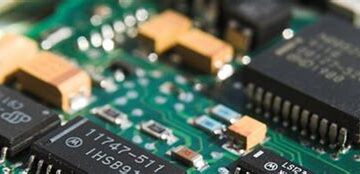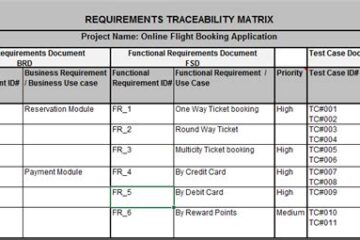Leading Laminate Manufacturer Expands Offerings with New PCB Certification Program
Isola Group, a global leader in the manufacture of high-performance laminate materials for printed Circuit Boards (PCBs), has announced the launch of a new PCB certification program. The program is designed to provide PCB Fabricators with a comprehensive set of guidelines and best practices for using Isola’s laminate materials to produce high-quality, reliable PCBs for a wide range of applications.
What is PCB Certification?
PCB certification is a process by which a PCB fabricator demonstrates their ability to consistently produce PCBs that meet a set of defined quality and performance standards. Certification programs are typically offered by laminate manufacturers, industry associations, or independent third-party organizations.
To become certified, a PCB fabricator must undergo a rigorous audit of their manufacturing processes, equipment, and quality control systems. They must also demonstrate their ability to produce PCBs that meet the specified performance requirements, such as:
- Copper peel strength
- Hole wall quality
- Signal integrity
- Thermal reliability
- Mechanical durability
Once a PCB fabricator has successfully completed the certification process, they are authorized to use the certification mark on their products and marketing materials. This mark serves as a symbol of quality and reliability, and helps to differentiate the fabricator from their competitors.
Benefits of PCB Certification
PCB certification offers a number of benefits to both PCB fabricators and their customers, including:
-
Improved Quality and Reliability: Certified PCB fabricators have demonstrated their ability to consistently produce high-quality PCBs that meet a set of defined performance standards. This helps to ensure that the end products that use these PCBs will function reliably and meet the needs of the intended application.
-
Reduced Risk and Liability: By using certified PCBs in their products, OEMs and product designers can reduce their risk and liability exposure. Certified PCBs have been independently verified to meet a set of quality and performance standards, which helps to minimize the risk of product failures or defects.
-
Faster Time-to-Market: Certified PCB fabricators have streamlined their manufacturing processes and quality control systems to ensure consistent, reliable results. This can help to reduce lead times and accelerate time-to-market for new products.
-
Competitive Advantage: PCB certification can help fabricators to differentiate themselves from their competitors and win new business. Many OEMs and product designers prefer to work with certified suppliers, as it gives them added confidence in the quality and reliability of the PCBs they are purchasing.
Isola’s PCB Certification Program
Isola’s new PCB certification program is designed to help PCB fabricators optimize their use of Isola’s laminate materials and achieve consistent, reliable results. The program includes a comprehensive set of guidelines and best practices for each stage of the PCB Manufacturing process, from design and material selection to fabrication and testing.
To become certified under Isola’s program, PCB fabricators must undergo a thorough audit of their manufacturing processes and quality control systems. This includes a review of their equipment, process controls, documentation, and testing procedures. Fabricators must also demonstrate their ability to produce PCBs that meet Isola’s specified performance requirements for each of their laminate materials.
Once a fabricator has successfully completed the certification process, they are authorized to use Isola’s certification mark on their products and marketing materials. They also receive ongoing technical support and training from Isola’s team of experts, to help them stay up-to-date with the latest advancements in laminate technology and PCB manufacturing best practices.
Isola’s Laminate Materials
Isola offers a wide range of high-performance laminate materials for PCB Fabrication, each designed to meet the specific needs of different applications and industries. Some of their most popular laminate materials include:
| Laminate Material | Description | Key Features |
|---|---|---|
| IS400 | High-Tg, low-loss material for high-speed digital applications | – Low dielectric constant and dissipation factor – Excellent thermal stability – Compatible with lead-free assembly processes |
| IS410 | High-reliability material for automotive and aerospace applications | – Excellent thermal and mechanical properties – Resistance to high temperatures and harsh environments – Meets IPC-4101D/126 performance requirements |
| TerraGreen | Halogen-free, sustainable material for “green” electronics | – Made with renewable and recycled content – Meets RoHS and REACH environmental regulations – Excellent electrical and thermal performance |
Each of these laminate materials has been extensively tested and validated by Isola’s team of experts, and is backed by a comprehensive set of technical data and support resources.
PCB Fabrication Best Practices
To help PCB fabricators achieve the best possible results with Isola’s laminate materials, the company has developed a set of best practices and guidelines for each stage of the PCB manufacturing process. These include:
-
Design: Isola provides detailed design guidelines for each of their laminate materials, including recommendations for copper weights, Hole Sizes, and layout techniques. By following these guidelines, designers can optimize the performance and reliability of their PCBs.
-
Material Selection: Choosing the right laminate material for a given application is critical to achieving the desired performance and reliability. Isola’s technical support team can help fabricators select the best material for their specific needs, based on factors such as the operating environment, signal speed, and cost considerations.
-
Fabrication: Proper handling and processing of Isola’s laminate materials is essential to achieving consistent, reliable results. This includes following recommended storage and handling procedures, as well as using the appropriate equipment and process settings for each material.
-
Testing and Quality Control: Isola recommends a comprehensive testing and quality control program to ensure that PCBs meet the specified performance requirements. This includes regular testing of key parameters such as copper peel strength, hole wall quality, and signal integrity, as well as visual inspection and functional testing of finished boards.
By following these best practices and guidelines, PCB fabricators can achieve the highest levels of quality and reliability with Isola’s laminate materials.
Frequently Asked Questions
-
What is the cost of Isola’s PCB certification program?
The cost of Isola’s PCB certification program varies depending on the size and complexity of the fabricator’s operations, as well as the specific laminate materials they are using. Isola provides customized quotes based on each fabricator’s unique needs and requirements. -
How long does it take to become certified under Isola’s program?
The certification process typically takes several weeks to complete, depending on the fabricator’s readiness and the complexity of their operations. Isola’s technical support team works closely with each fabricator to guide them through the process and ensure a smooth and efficient certification. -
What happens if a fabricator fails to meet Isola’s certification requirements?
If a fabricator fails to meet Isola’s certification requirements, Isola’s technical support team will work with them to identify areas for improvement and develop a corrective action plan. Fabricators will have the opportunity to address any issues and re-apply for certification once they have demonstrated compliance with Isola’s standards. -
How often do fabricators need to renew their certification?
Isola’s PCB certification is valid for a period of two years from the date of issuance. Fabricators must undergo a recertification audit prior to the expiration of their current certification to maintain their status. -
Can Isola’s certification be used for other laminate materials besides Isola’s?
No, Isola’s PCB certification program is specific to Isola’s laminate materials and manufacturing processes. Fabricators who wish to become certified for other laminate materials will need to pursue certification through those manufacturers’ programs.
Conclusion
Isola’s new PCB certification program is a significant development for the PCB industry, providing fabricators with a comprehensive set of guidelines and best practices for using Isola’s high-performance laminate materials. By becoming certified under Isola’s program, fabricators can demonstrate their commitment to quality and reliability, and differentiate themselves from their competitors.
For OEMs and product designers, using certified PCBs from Isola-certified fabricators can help to reduce risk and liability exposure, while also ensuring the highest levels of performance and reliability for their end products. With its wide range of laminate materials and extensive technical support resources, Isola is well-positioned to help the PCB industry meet the demands of an increasingly complex and challenging market.



0 Comments